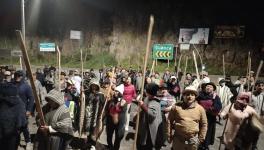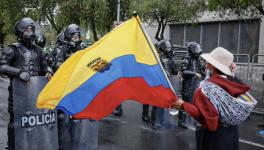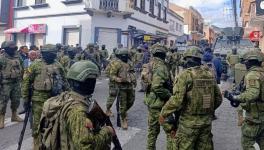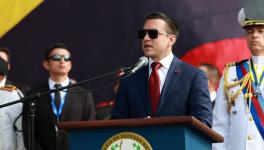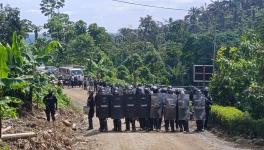Ecuador Approves Controversial Surveillance Law
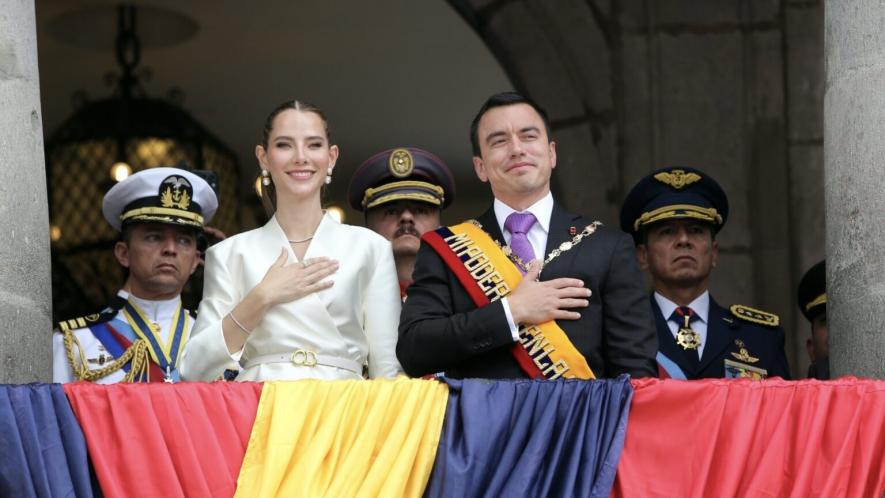
Ecuadorian President Daniel Noboa. Photo: Daniel Noboa / X
The National Assembly of Ecuador, controlled by the right-wing party of President Daniel Noboa, approved the Organic Law on Intelligence June 11, which was sent to the legislative branch by the right-wing President Daniel Noboa the day before.
For a moment, it seemed like the controversial law would fail to gain the necessary votes, but in an unexpected turn of events, one of the assembly members of the Correista party Citizen Revolution (RC), David Arias, supported the government’s bill. RC swiftly expelled him from the party for the move. However, National Democratic Action (ADN), the president’s party, was able to approve a law that guarantees and expands its control over information security functions, under the pretext of the security crisis the country is experiencing.
What does the Organic Law on Intelligence entail?
Among the most controversial powers now enjoyed by the intelligence agencies are:
- The ability to intercept telephone calls and listen to them
- Access to citizens’ data in real-time as well as past data
- New identities for intelligence agents granted by the civil registry
- Declaring the information and expenses of police and military intelligence as classified
- Requesting private employee information from any company (including telecommunications companies)
The most controversial aspect of the law is that agents will no longer need a court order to intercept calls, collect people’s private information, or conduct any other type of surveillance. In addition, this information can then be used to take legal action against citizens. Effectively granting certain state agencies unprecedented control over citizens’ information. The judiciary has been totally removed from this equation.
Moreover, the only body that can exercise any “control” over intelligence activities would be the comptroller general of the state. However, according to the law, once he has reviewed the activity reports, he must destroy the documents, which many interpret as a way to protect intelligence agencies from accountability for surveillance actions. Critics argue the comptroller’s role provides no real counterweight to these activities and is an extremely limited observational position.
The newly created National Intelligence System (SNI) will oversee these functions and will be directed by a representative of the president of the republic. In addition, it will have representatives from: police, military, financial analysts, members of the presidential military house, tax, customs, penitentiary, social rehabilitation, and any other that the president wishes.
The SNI will have the authority to issue regulations and conduct the intelligence activities it deems appropriate, making it one of the most powerful agencies in the country.
Although this law may seem exceptional, it is part of a growing category of legislation that limits the right to privacy. Myanmar, the United Kingdom, and the United States are some of the countries where such laws have been passed. These laws allow the state to access the digital information of any person considered a threat or risk to the state. They have provoked widespread criticism for allegedly violating human rights.
Intelligence law or espionage law?
According to the government, the law will be applied “under the principles of necessity and proportionality.” It has also been stressed that this law is vital to confronting the criminal groups that have plunged the country into its most serious security crisis in history.
Government Secretary José de la Gasca said: “We’re imposing a law and establishing limits where none existed, and creating a legalized Intelligence Law, standardized with accountability and transparency. We can’t fight this conflict blindfolded.“
On the contrary, the RC legislator and former Minister of Defense, Ricardo Patiño, said: ”With Noboa’s new [intelligence] law, the government will be able to access your chats and calls without the need for a court order. It is a serious threat to privacy and could be used to persecute opponents.”
Several sectors of the opposition as well as journalists are also reluctant to trust the government’s word.
“It is important to remember [that the law] allows intervention without judicial control, which is very important in any democracy,” said Elena Rodrigues, Telesur’s correspondent in Ecuador, speaking with Peoples Dispatch. She called the measure “legalized espionage” because it violates a key legal principle that “any intrusion into privacy must be supervised by an impartial authority, by a judge.” Rodrigues argues that this dynamic puts citizens in a completely defenseless position against a state with no impunity and “total surveillance capacity.”
The journalist also pointed out that the law could be used as a method of political espionage followed by lawfare (using the judicial system to persecute opponents). “The application of the law is not restricted to crimes such as drug trafficking or terrorism,” she said. All that authorities need to do is “invoke an alleged threat to the state, which is an ambiguous concept,” in order to target someone under this legislation.
“In a political context in which the right wing is co-opting all powers, it can target those who dissent, leftist political actors,” Rodrigues added.
Beyond silencing social protest, she also points out that journalists could be in danger of losing the confidentiality of their sources of information. The law could effectively be used to “silence the press, or to prevent the press from exercising its critical role, because it will be forced to reveal its sources.”
For his part, Diego Vintimilla, ideological secretary of the Communist Party of Ecuador, argues that the law is “a message to the population and the political organizations that they are under surveillance, controlled, and that there is no way to organize.” Although the fight against terrorism is the official justification for it, he says “the establishment of a regime of persecution and restriction of freedoms” is the real goal behind the law, in order to guarantee Noboa’s power amid converging crises in the country.
Responding to those that might think “I have nothing to hide, so I don’t mind surveillance,” Vintimilla warns that surveillance isn’t limited solely to “criminal activities,” it targets people for their political ideas. Under this framework, “any political attitude could be a criminal activity.” He argues that this trend threatens to “depoliticize” society by making political engagement seem dangerous or criminal.
As such, Vintimilla says, “our basic condition as citizens is compromised.”
Courtesy: Peoples Dispatch
Get the latest reports & analysis with people's perspective on Protests, movements & deep analytical videos, discussions of the current affairs in your Telegram app. Subscribe to NewsClick's Telegram channel & get Real-Time updates on stories, as they get published on our website.











